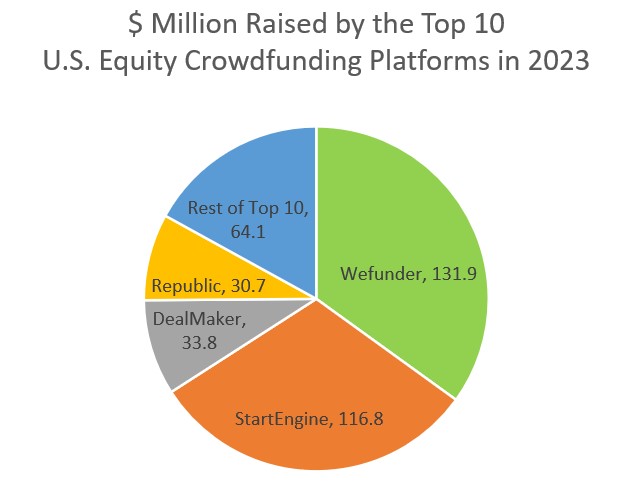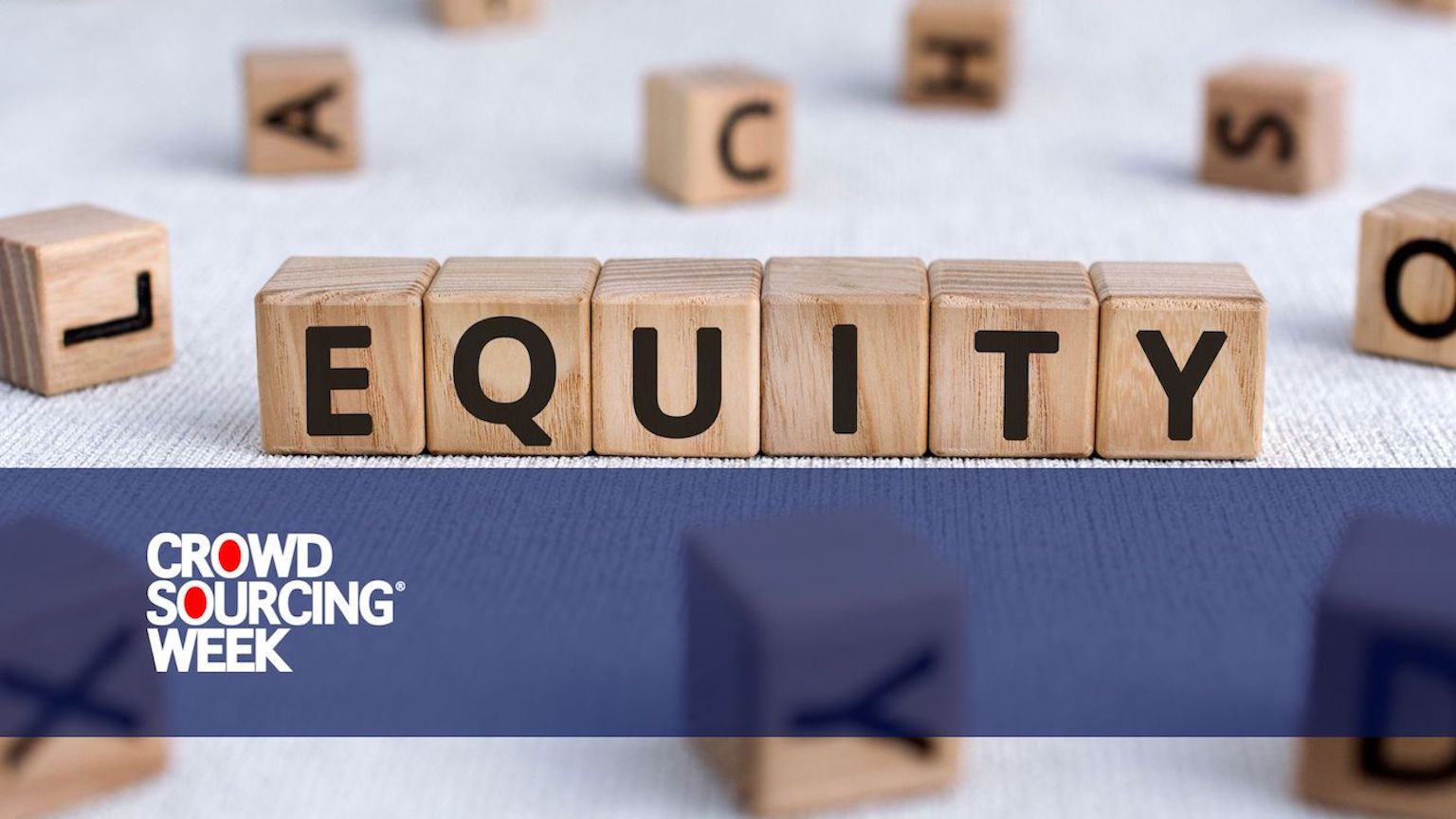Equity crowdfunding is an alternative finance model that leverages the power of the internet for owners of privately-owned businesses to raise funding by offering shares. At the same time, it allows private investors to buy equity in businesses that they believe are going to deliver a good return. It is a business funding model that began in the UK with the platforms Crowdcube in 2011, and then Seedrs in 2012. In the United States, equity crowdfunding began when the Jumpstart Our Business Startups Act (JOBS Act) was signed into law by President Obama on April 5, 2012. It was extended to less sophisticated and wealthy retail investors (i.e. non-accredited) in May 2016. This blog looks closer at how it works, its benefits, and the top equity crowdfunding platforms in North America.
The financial background at that time
In both countries, banks had cut back on loans to startup businesses following the 2007-2008 global economic crisis. They were also offering particularly low interest rates to savers. This coincided with the rollout of the first smartphones which brought mass connectivity to people through hand-held devices.
The main purpose of crowdfunding was to expand and ease methods of raising capital by smaller companies. It also enabled the general public to invest in startups as a way to potentially achieve a better rate of return than main street/high street financial service providers were offering.
Along with relaxing the regulatory burden, equity crowdfunding made it simple for retail investors to buy equity in startups through their smartphone. Minimum investment levels could be just a few dollars or a few pounds, and regulated equity crowdfunding platforms provided a one-stop-shop by managing the whole process from conducting due diligence and handling transactions to issuing share certificates.
There is a high risk that any business may fail, and investors may lose their investment. Wise investors will back a portfolio of companies, perhaps in different business sectors and that are at different stages of their development. They may even invest in startups in different countries for the widest diversity.
What makes equity crowdfunding different?
The key element of ‘crowdfunding’ that makes it stand out from other sources of small business funding is that it requires a crowd of retail investors to get involved (amateur investors who use their personal money), as opposed to a business being funded by just a handful of professional investors, or a bank loan or through receiving a grant.
Most equity crowdfunding projects will offer a level of equity in a business at a share price that achieves a minimum financial target. Others operate on a convertible loan basis: backers lend a business money, and when a share price is set at a later date their loan is converted to shares at a preferential rate.
In both cases, failure to reach the funding target results in all monies returned to the backers. On reaching its target, a crowdfunding project may continue with an aim to reach a ‘stretch target’. If a business fails to reach its stretch target, it can still keep all the money that is offered for investment because it exceeded the original target.
Equity crowdfunding platforms’ agenda
Whilst it is a fundamental truth that businesses using equity crowdfunding have to attract a large crowd of retail investors, the crowdfunding platforms have their own particular aims as well.
- A frequently quoted statistic is that 90% of startups fail within 10 years. Each platform wants to build a network of registered and confident investors by showing that the businesses in which they offer investment opportunities perform much better than the average 90% failure rate.
- The platforms receive payment only when a crowdfunding project succeeds, so they look for evidence that any investment opportunity will have strong appeal to retail investors. Retail investors have more confidence when they invest alongside some core professional backers, which can include angel investors, family funds, VC funds, acknowledged business leaders and high net worth individuals. A startup founder/owner therefore has to do some personal pre-selling to secure cornerstone investors that guarantee a significant proportion of the total target, typically at least 30%.
Types of retail investor
Each round of equity crowdfunding then requires a well-planned marketing effort to reach the minimum funding target by convincing enough retail investors.
Some of the potential investors will simply look at the numbers of each investment opportunity and weigh up the prospects of a good financial return.
Some “spread their bets” and invest in funds created by the platforms in order to back numerous startup businesses.
Other retail investors can be more philanthropical about their decision-making, and decide to help individuals or businesses that they feel deserve support on the basis of possible benefits for its intended stakeholders if it succeeds. Feeling a warm glow from having helped can be rewarding enough, even if there isn’t much, if any, eventual financial return.
Or maybe some choose to support a business whose aims and mission match their own civic community or ESG interests in terms of sustainability, clean energy, recycling, environment, and so on.
At what stage do businesses use equity crowdfunding?
Rounds of equity crowdfunding frequently raise sums early in their growth stages, often pre-revenue, and seek sums that are too small for VC fund managers to be concerned about. These two methods of fundraising are sometimes misleadingly portrayed as competing with each other. Increasingly, they can be used together in complementary ways.
More often, crowdfunding will be used first before a business has started generating sales or orders, and the support of a crowd of retail investors may then be used as evidence that the business warrants support from a more professional or institutional investor base.
There are also instances when a business has reached a stage of VC investment, and they still continue with equity crowdfunding, often raising far lower sums. This is often in B2C and D2C businesses, where offering shares can both reward and create customer loyalty. Good crowdfunding is good marketing.
Investors’ exit point
Businesses that raise money through equity crowdfunding rarely pay dividends to investors. Those investors usually prepare for a long wait to finally receive a return when a business is either acquired by a bigger company, or a business issues its own public shares (an IPO, initial public offering).
However, even if a startup business does not fail, it may never grow to a size that it offers an IPO, or becomes an acquisition target of an established player in its market sector. The early illiquidity of shares in startups was seen as a disadvantage of equity crowdfunding, though a growing number of secondary markets for shares in privately-owned companies are providing retail investors with the means to determine their personal exit strategies.
Of course the least welcome exit point is when a business fails and investors receive no return.
U.S. equity crowdfunding sites
As of May 16, 2016, Title III of the JOBS Act extended online equity crowdfunding opportunities to Americans earning under $200,000 per year, though included limits on the amounts that could be invested.
Equity crowdfunding investors remain divided into categories of accredited and non-accredited. Broadly based on accumulated wealth and income, rules are in place to “protect” non-accredited investors from getting into situations of unaffordable losses. However, the current demarcation lines may change. In 2023 the House of Representatives passed a bill that paves the way for the creation of an accredited investor exam. This would allow current non-accredited investors to demonstrate they have the knowledge and understanding required to participate with accredited status in the private market. The exam would be administered by the Financial Industry Regulatory Authority (FINRA), though there is nothing about it on its site.
As a result, there are different equity crowdfunding platforms that cater to the accredited and non-accredited investors, though some apply to both. Platforms solely for accredited investors allow businesses to raise up to $75m through Reg A+ offers. Under Regulation Crowdfunding (Reg CF) business are able to raise up to $5m in a 12-month period from non-accredited investors. Reg CF is what many people mean when they refer to equity crowdfunding.
Reg CF equity crowdfunding platforms for non-accredited investors
In 2023, four equity crowdfunding platforms in North America raised 75 cents out of every dollar generated by Reg CF projects in the United States.

Data source: kingscrowd.com
Wefunder
Wefunder is a popular equity crowdfunding platform, letting everyday people invest in startups for as little as $100. It connects businesses with a community of potential investors who become part-owners by purchasing shares, which allows startups to raise capital from a wider pool compared to traditional methods. In 2023 it raised a total of $131.9 million from US investors
Wefunder also expanded to Europe in 2023 through a partnership with the UK platform Crowdcube, which is authorised by the EU to raise funds throughout the whole European Union of 27 countries. It’s a good fit for startups seeking an alternative funding source while potentially building a loyal community of early backers.
StartEngine
StartEngine is a pioneer in equity crowdfunding, and launched the first-ever campaign of its kind in the U.S. in 2015. It facilitates investments in startups and growing companies for both accredited and non-accredited investors through both Regulation Crowdfunding and Regulation A, allowing businesses more flexibility.
The platform has facilitated over $200 million raised in the past year, and over $500 million overall, making it a major player in the space. For startups seeking a large potential investor pool and a platform with experience, StartEngine is a strong contender.
Republic
Republic is a newer equity crowdfunding platform, and operates alongside Europe’s leading equity platform Seedrs which it acquired in 2021. Seedrs is authorized to raise funds through the whole European Union of 27 countries.
Republic also offers a diverse range of investment opportunities beyond just startups, including real estate, video games, and even crypto companies. The platform caters to both individual investors and institutions, and its special “Deal Room” features select private deals co-invested with top venture funds.
This makes the platform a good fit for investors seeking a variety of investment options and potentially getting in on the ground floor with exciting ventures. However, keep in mind Republic focuses on higher-risk, unlisted investments compared to some other platforms.
DealMaker
This platform deserves inclusion, though unlike platforms open to everyone, DealMaker positions itself as the “Shopify of Capital Markets.” It offers a self-hosted solution where businesses can manage their offerings directly on their website, potentially saving costs and strengthening brand identity.
DealMaker goes beyond basic crowdfunding, supporting various regulations like Reg CF, Reg D, and Reg A/A+. This allows companies to raise capital from a wider pool of investors with different investment limits. Their platform boasts features like integrated investor relations tools and compliance checks. A company seeking a comprehensive, self-directed approach to equity crowdfunding in North America, with advanced features, should certainly consider DealMaker.
In Canada
A look at equity crowdfunding in North America would not complete without including at least one platform in Canada, and FrontFundr is Canada’s largest one. Since its launch in 2015 it has enabled over 40,000 backers to invest in excess of $200m in more than 175 businesses.
In 2023, 63 businesses successfully raised an average of $583,000, and an average of 59 investors backed each of these rounds. The total amount raised was $36.7m, of which $31.5m (almost 86%) was in finance and real estate.
91% of all the businesses that have raised funding on FrontFundr are either still operating or have achieved an exit.
Democratized access to business funding
Equity crowdfunding in North America has been described as “democratizing business funding” because it avoids any perceived bias (whether conscious or subconscious) displayed by institutional investors. Businesses are judged and investment is raised on the basis of their own merits, rather than through personal contacts such as a business founder who went to the same college as a VC fund manager.
Smaller equity crowdfunding platforms cater to specialist business sectors, such as Seed & Spark for the movie and video industry, or serve ethnic minorities, such as The BOX (Black-Owned eXcellence) and Vesterr for African-Americans involved in real estate crowdfunding (which can be regarded as a separate category of crowdfunding in its own right, with its own specialist platforms).
Equity crowdfunding in North America, in fact everywhere, can also help startups that intend to disrupt both markets and established business models. VCs and other institutional lenders are unable to examine comparable businesses to help guide their decision-making, and often fail to commit.
Equity crowdfunding therefore provides a vital and unique role for many entrepreneurs who would otherwise likely be starved of investment.





0 Comments